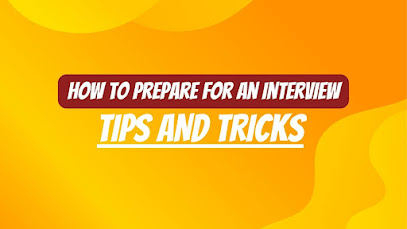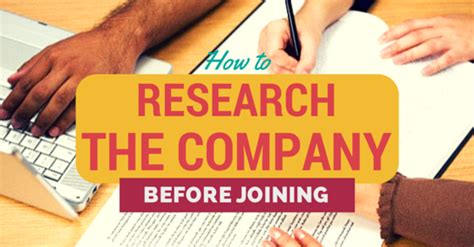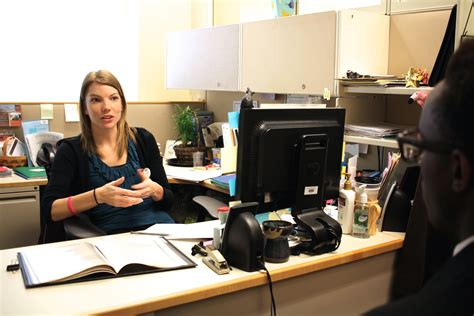Hello there, welcome to our article on how to prepare for an interview. We understand that interviews can be nerve-wracking, but with the right preparation, you can increase your chances of success.
Firstly, we want to say that we believe in you and your abilities. You have come this far in your career journey, and this interview is just another step towards achieving your goals. We know that interviews can be intimidating, but remember that you have the skills and experience that make you a strong candidate.
Now that you know what topics we'll be covering, let's dive in and explore each one in detail. These tips and strategies will help you feel more confident and prepared for your upcoming interview.
So, let's get started! Continue reading to discover how you can effectively prepare for an interview and increase your chances of landing that dream job.
Thank you for your interest in our article. We hope you find the information helpful and valuable in your interview preparation. Good luck!
Research the Company
When applying for a job, it is important to research the company you are interested in. This will not only help you understand the organization better, but also show your potential employer that you are genuinely interested in working for them. By conducting thorough research, you can gather valuable information about the company's history, mission, values, products or services, and its position in the industry.
One of the key benefits of researching the company is that it allows you to tailor your application and interview responses to align with the organization's needs and goals. You can highlight specific skills or experiences that are relevant to the company's operations or objectives. Additionally, by familiarizing yourself with the company's culture and values, you can assess whether it is a good fit for you.
Researching the company before applying or interviewing shows your dedication and enthusiasm for the position. It also allows you to ask informed questions and engage in meaningful conversations during the hiring process.
Prepare Common Questions
When preparing for any kind of interview or presentation, it is important to anticipate and prepare for common questions that may be asked. By doing so, you can increase your chances of giving a well-thought-out and confident response. Here are a few tips to help you prepare:
1. Research the company or organization: Take the time to learn about the company or organization you are interviewing or presenting for. This will help you understand their values, goals, and what they are looking for in a candidate or presenter.
2. Review your resume or presentation materials: Take a close look at your resume or presentation materials and think about how your experiences and skills align with the position or topic you are discussing. Be prepared to provide specific examples and anecdotes that showcase your abilities.
By preparing common questions in advance, you can feel more confident and prepared during your interview or presentation. Remember to practice your responses and stay calm and composed. Good luck!
Dress Professionally
Dressing professionally is important in many aspects of life, whether it's for a job interview, a business meeting, or even just to make a good impression. Here are some key points to keep in mind when it comes to dressing professionally:
- 1. Dress appropriately for the occasion: Different occasions may call for different levels of formality. It's important to understand the dress code and dress accordingly.
- 2. Pay attention to grooming: Personal hygiene is crucial when it comes to looking professional. Make sure your hair is well-groomed, your nails are clean, and your overall appearance is neat and tidy.
- 3. Choose the right attire: Select clothes that fit well and flatter your body shape. Avoid outfits that are too tight, too revealing, or too casual for the professional setting.
- 4. Stick to neutral colors: Neutral colors like black, navy, gray, and white are safe choices for professional attire. They convey a sense of professionalism and are less likely to distract or offend.
- 5. Pay attention to details: Small details like ironed clothes, polished shoes, and well-maintained accessories can make a big difference in your overall professional appearance.
- 6. Dress for success: Dressing professionally not only affects how others perceive you but also how you perceive yourself. When you look professional, you feel more confident and capable.
- 7. Be mindful of cultural differences: Different cultures may have different expectations when it comes to professional attire. It's important to be aware of cultural norms and adapt accordingly.
- 8. Dress for the industry: Different industries may have different dress codes. Research the dress expectations within your industry and dress accordingly to fit in and show respect.
- 9. Dress for the role: Consider the role you are in or aspiring to be in. Dressing professionally can help convey your professionalism and commitment to your job or career.
Practice Mock Interviews
Mock interviews are a valuable tool for job seekers to improve their interview skills and boost their confidence. By simulating a real interview scenario, candidates can practice their responses, body language, and overall performance in a safe and supportive environment.
During a mock interview, candidates can receive feedback and constructive criticism from professionals or experienced interviewers. This feedback can help identify areas of improvement and provide valuable insights on how to present oneself effectively during an actual job interview.
Mock interviews provide an opportunity for candidates to learn from their mistakes and refine their interview techniques, ultimately increasing their chances of success in real job interviews.
Arrive Early
In conclusion, arriving early is a habit that can greatly benefit our lives. Whether it's for work, appointments, or social events, being punctual shows respect for other people's time and demonstrates our reliability. By arriving early, we have the opportunity to prepare ourselves mentally and physically, ensuring that we are ready to give our best. It also allows us to avoid the stress and anxiety that comes with rushing and being late.
As the saying goes, "The early bird catches the worm." When we arrive early, we are able to seize opportunities that may not be available to those who are late. We have the chance to network, make connections, and get a head start on our tasks. It gives us a competitive edge and sets us apart from the crowd. Additionally, arriving early allows us to have some time for ourselves, whether it's to relax, meditate, or engage in activities that bring us joy.
Arriving early is not just about being on time; it's about being prepared, respectful, and proactive.
Thank you for taking the time to read this article. I hope it has inspired you to make a conscious effort to arrive early in your daily life. Remember, being punctual is a small but significant step towards personal and professional success. So, let's strive to be the early bird and reap the rewards that come with it. Until next time, take care and see you in another interesting article. Thank's!



